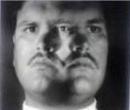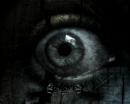I think dream recall is a bit random for me but much better on weekends and on high dose melatonin |
|
Results 151 to 168 of 168
-
02-14-2015 04:08 PM #151
...and thus:
The point of working on access to memory is not that you will have awesome access in every lucid dream, but that you can ever access it at all, with hopefully a consistent average performance in most dreams. All mental functions fluctuate naturally depending on how well rested you are, level of stress/anxiety, etc.
I would say, even people with no training do have a baseline level of dream recall in the morning and access to memory in dreams. And no one ever performs perfectly in either task. So as for the exercise I proposed, there is no need to fluctuate from perfect knowledge of past to a state of non-existent knowledge, one only needs to control their access, increasing it and then decreasing it, just like a muscle does not need to be contracted all the way and then relaxed all the way for the work-out to be efficient.
-
02-14-2015 05:49 PM #152Member Achievements:





- Join Date
- Nov 2014
- LD Count
- 264 total
- Gender

- Location
- Sacramento
- Posts
- 937
- Likes
- 578
Sure LUCID DREAMS are all fun and games until someone loses a third eye.
-
02-14-2015 09:08 PM #153Moderator

 Achievements:
Achievements:








- Join Date
- Sep 2013
- LD Count
- 327
- Location
- The Present Moment
- Posts
- 5,449
- Likes
- 6934
- DJ Entries
- 960
Perhaps a bit off-topic but regarding recall, what you get out of it largely depends on the effort you put into it. If you reach for recall at every waking, day in an day out, in thick or thin, I think it can't help but grow and grow over time.
What I know for sure is that before LD training, I only recalled dreams once in a rare while, once every couple of months perhaps. I think the baseline of dream recall for people not trying to recall or who have no interest in dreams is likely similarly quite low.FryingMan's Unified Theory of Lucid Dreaming: Pay Attention, Reflect, Recall -- Both Day and Night[link]
FryingMan's Dream Recall Tips -- Awesome Links
“No amount of security is worth the suffering of a mediocre life chained to a routine that has killed your dreams.”
"...develop stability in awareness and your dreams will change in extraordinary ways" -- TYoDaS
-
02-14-2015 10:07 PM #154Administrator


 Achievements:
Achievements:








- Join Date
- Jul 2007
- LD Count
- 2500ish
- Gender

- Location
- Idaho
- Posts
- 4,837
- Likes
- 5871
- DJ Entries
- 420
Maybe it is on topic, as it involves memory and the state of non-lucid awareness (lack of).
I have met at least one person who claimed not to have dreams. After some talking it was clear they sometimes remembered wisps of dream fragments, but had so poor of recall, that basically dreaming was closed off from there memory entirely.
So, on topic, could there be a relation between recall and the ability to access the type of memory Sageous is talking about? You have got me thinking maybe so.
-
02-15-2015 12:21 AM #155high mileage oneironaut Achievements:











- Join Date
- Jun 2011
- LD Count
- 40 + Yrs' Worth
- Gender

- Location
- Here & Now
- Posts
- 5,031
- Likes
- 7160
^^ Sure there is a relation, because any act of using memory is related to memory in general. So if you are improving some aspect of memory's use, you are likely improving to some degree your relationship with your memory. But that's as far as it goes, I think.
Dream recall is a memory activity that occurs while you already have full access to memory. When building your recall skills (a very good thing to do, of course), you really are not simultaneously building your ability to access your memory from a position of no access. The difficulty in dream recall is that non-lucid dreams don't tend to get "saved" very well, so you must make an extra and immediate effort -- using the active memory to which you have full access upon waking -- to make what you just dreamed important enough to be stored as a memory. This is, I believe, a very different process than accessing memory during a dream.
-
02-17-2015 03:49 AM #156Member Achievements:





- Join Date
- Dec 2005
- Gender

- Posts
- 676
- Likes
- 355
I thought this was interesting: As I was getting close to falling asleep at some point this morning, I started thinking of a particular activity I usually do on the weekends, thinking I had forgotten to do it. After a moment, I was regaining awareness again and started to realize I had in fact done that activity already. This makes me wonder if the access to memory starts to get turned off quite early in the sleep process—for me, dreamlets like these often begin occurring well before I actually lose consciousness.
-
02-19-2015 06:18 PM #157Please, call me Louai



- Join Date
- Dec 2013
- LD Count
- 82
- Gender

- Location
- Mount Lebanon
- Posts
- 1,690
- Likes
- 1216
- DJ Entries
- 13
I fill my heart with fire, with passion, passion for what makes me nostalgic. A unique perspective fuels my fire, makes me discover new passions, more nostalgia. I love it.
"People tell dreamers to reality check and realize this is the real world and not one of fantasies, but little do they know that for us Lucid Dreamers, it all starts when the RC fails"
Add me as a friend !!!
!!!
-
02-19-2015 08:35 PM #158


MemberAchievements:








- Join Date
- Sep 2012
- Gender

- Location
- The Depths
- Posts
- 4,418
- Likes
- 5602
- DJ Entries
- 116
Haha. Yeah, those moments when you are like "what is that noise?! Oh... it is me snoring." Lol
I often have one or two senses in a dream before I am even in the dream. Sight or sound or something similar and if I pay attention to it, it will get stronger, but it can also wake me up. I can use my dream body to move, but if I try to use my normal body I just move my normal body. Lol. I usually wait until I figure out that I can't feel my waking body anymore.
-
02-19-2015 08:43 PM #159Thaumaturge Achievements:









- Join Date
- May 2013
- LD Count
- A few
- Gender

- Location
- Look behind you
- Posts
- 411
- Likes
- 408
- DJ Entries
- 352
In my lucid last night I remembered about this thread, and I decided to try and remember where I was IWL, and it was interesting hehe. I immediately thought ''I'm asleep at *insert address here*" without a doubt in the world. However, that address was where I was in the dream (my mum's house) not where I was sleeping then (my dad's house). I also had fairly low level lucidity in that dream, which I feel may be linked to my memory being shut off like in that instance. What do you guys who know far more than me bout this think?
 “I don't think that you have any insight whatsoever into your capacity for good until you have some well-developed insight into your capacity for evil.”
“I don't think that you have any insight whatsoever into your capacity for good until you have some well-developed insight into your capacity for evil.”
― Jordan B. Peterson
-
02-19-2015 11:02 PM #160high mileage oneironaut Achievements:











- Join Date
- Jun 2011
- LD Count
- 40 + Yrs' Worth
- Gender

- Location
- Here & Now
- Posts
- 5,031
- Likes
- 7160
^^ That's interesting. It seems you didn't have quite enough lucidity to truly remember where your sleeping body was, just like you said. Or:
You may have been having a non-lucid dream about remembering where your sleeping body is, fueled by day residue about this thread, and fleshed out not by your faulty, low-level lucid connection with memory, but rather with stuff your dreaming mind felt appropriate to complete the required schema.
I don't know if I mentioned this before, but it might be a good idea to simply remember, at least at first, that your sleeping body is somewhere else, quietly snoozing away in the physical world, without demanding any specifics. Try not to grab onto a specific memory (like that address), until you are comfortable with the fact that the body you are in is a dream body, your actual body is asleep somewhere, and that your access to memory is just like it would be in waking life. After you've done the "sleeping body check," then go about solidifying your access to memory with all that other stuff.
-
02-20-2015 10:09 AM #161Moderator

 Achievements:
Achievements:








- Join Date
- Sep 2013
- LD Count
- 327
- Location
- The Present Moment
- Posts
- 5,449
- Likes
- 6934
- DJ Entries
- 960
FryingMan's Unified Theory of Lucid Dreaming: Pay Attention, Reflect, Recall -- Both Day and Night[link]
FryingMan's Dream Recall Tips -- Awesome Links
“No amount of security is worth the suffering of a mediocre life chained to a routine that has killed your dreams.”
"...develop stability in awareness and your dreams will change in extraordinary ways" -- TYoDaS
-
02-20-2015 02:12 PM #162Lucid Elder God Achievements:









- Join Date
- Apr 2011
- LD Count
- non-Euclidean
- Location
- R'lyeh
- Posts
- 1,702
- Likes
- 1672
- DJ Entries
- 17
^On the other hand, perhaps it is this automatic suggestion that is to be avoided, as it may lead exactly to blairbro's quasi-lucid scenario. The problem is that there is no way to empirically test the veracity of your memory in-dream short of waking yourself to confirm your recollection (an idea nobody here is keen on, I feel). This is a real Cartesian minefield (how do you know you do not dream of dreaming, and then dream of remembering your waking life, etc.?). I therefore suggest that the most fundamental gesture is the memory of a physical reality external to the dream (as has been suggested earlier in the thread) without opening the door to the obfuscations and gap-filling delusions of dream false memory which fogs lucidity. Of course, a semi-LD in which you falsely believe yourself to be sleeping in your childhood home is better than an LD in which you don't remember your sleeping body at all, and such a false memory could even prove a boon when attempting certain dream control tasks for the first time as an artificial confidence boost.
But for our purposes (ie. opening the door to advanced lucidity), I think the best practice would resemble Yuschak's "breaking down the wall" exercise posted earlier by Nfri - remembering, with the use of mnemonics or otherwise, certain particulars of the day.
EDIT: It has occurred to me that this topic may be thought of as the mirror movement to stabilisation as articulated in Mzzkc's stabilisation fundamentals thread.My Lucid Dreaming Articles/Tutorials:
Mindfulness - An Alternative Approach to ADA
Intent in Lucid Dreaming; Break that Dry-Spell, Escape the Technique Rut
Always, no sometimes think it's me,
But you know I know when it's a dream
I think I know I mean a yes
But it's all wrong
That is I think I disagree
-John Lennon
-
02-20-2015 02:59 PM #163The i's are invisible. Achievements:









- Join Date
- Mar 2009
- LD Count
- l҉ots
- Location
- Present Day. Present Time.
- Posts
- 2,367
- Likes
- 1688
- DJ Entries
- 179
-
02-20-2015 05:08 PM #164high mileage oneironaut Achievements:











- Join Date
- Jun 2011
- LD Count
- 40 + Yrs' Worth
- Gender

- Location
- Here & Now
- Posts
- 5,031
- Likes
- 7160
Isn't this what I have been saying pretty much since the OP? You are phrasing as if you disagree, yet I cannot find anything that runs contrary to what I've been saying. Except for this, and only slightly:
I think that Yuschak was likely already fully accessing his memory while doing the exercise he outlines, else he would have been subject to the very problem that you describe above, and BlairBros described in his post: dreaming about recalling specific memories, with all those memories being wrong but fully accepted. It is a fine thing to remember specifics after you feel reconnected with memory, but the connection must be made first before you can confidently remember those particulars. And yes, that connection is certainly something that cannot be confirmed empirically; you must simply know you are connected (and you will).But for our purposes (ie. opening the door to advanced lucidity), I think the best practice would resemble Yuschak's "breaking down the wall" exercise posted earlier by Nfri - remembering, with the use of mnemonics or otherwise, certain particulars of the day.
So yes, as a tool for advanced LD'ing, memory is crucial, but that wall must already be broken before you can exercise the memory you've accessed.
And to agree with you one more time:
This might not be the best idea, FryingMan. Remembering to do your sleeping body check (guess we can't call it SBC yet, huh? Too soon? ) is better done after you have become lucid during a dream. Adding it to your day practice might result in what Ctharlhie already described, I think: you will build an expectation to remember your sleeping body, and that expectation might result in your unconscious obliging that expectation with completely meaningless but fully believed information (like what BlairBros experienced) about a dream-version of your sleeping body.
) is better done after you have become lucid during a dream. Adding it to your day practice might result in what Ctharlhie already described, I think: you will build an expectation to remember your sleeping body, and that expectation might result in your unconscious obliging that expectation with completely meaningless but fully believed information (like what BlairBros experienced) about a dream-version of your sleeping body.
I think the closest I would come to waking-life focus on your sleeping body check is maybe setting an intention to remember to remember right before sleep. Otherwise, I suggest that you save the exercise for when you are lucid.
Finally:
Though I am looking forward to Mzzkc's response myself, please remember that the topic of this thread is the importance of memory in general to LD'ing, and not about specific techniques for prolonging lucidity. The sleeping body check (and other checks described) was never meant to be the focus of this thread. I think it sort of emerged as a practical thing onto which people could grab, but the thread's topic itself is simply memory, and not stabilization or specific techniques. It is of course interesting and valuable to discuss these narrower uses of memory (once it is accessed), and perhaps the "general" discussion is fully played out, so I'm fine with the digression at this point, but I just wanted to make that clear.
-
02-20-2015 05:50 PM #165Moderator

 Achievements:
Achievements:








- Join Date
- Sep 2013
- LD Count
- 327
- Location
- The Present Moment
- Posts
- 5,449
- Likes
- 6934
- DJ Entries
- 960
^^ I'm not "doing SBC" when awake, I'm just reminding myself to do it when lucid. I've had good results with this approach (rehearsing the "just got lucid moment" when awake) with no signs of false lucid experiences.
FryingMan's Unified Theory of Lucid Dreaming: Pay Attention, Reflect, Recall -- Both Day and Night[link]
FryingMan's Dream Recall Tips -- Awesome Links
“No amount of security is worth the suffering of a mediocre life chained to a routine that has killed your dreams.”
"...develop stability in awareness and your dreams will change in extraordinary ways" -- TYoDaS
-
02-21-2015 03:02 AM #166Member Achievements:





- Join Date
- Dec 2005
- Gender

- Posts
- 676
- Likes
- 355
This may not be very significant, but I thought I might mention it in case it proves interesting—humble apologies if it isn't, or if it is actually unrelated to the topic at hand. Sometimes I'm noticing that after I wake up from a dream (and therefore have normal memory access again), it apparently isn't until I consciously go over the dream that the details actually get reevaluated within my current context of waking memory.
Quick example: I recently had a dream where I was reading a car manual discussing the stereo system and how to operate external devices plugged into the auxiliary input. The car company only discussed their own brand of devices in the manual; the devices were Sony devices. I woke up generally remembering this had happened, but only when I stepped through the details of the dream for journaling and reached this point did I recognize the oddity: Sony doesn't make cars.
It might be an interesting experiment (if not an overly useful one), upon becoming lucid during a DILD, to look back at the events that have just occurred in the dream, attempt to reconnect with memory, and then recall them again to see if a similar effect occurs. Though if it does, perhaps that could help confirm that the reconnection to memory was successful?
-
02-21-2015 07:52 AM #167high mileage oneironaut Achievements:











- Join Date
- Jun 2011
- LD Count
- 40 + Yrs' Worth
- Gender

- Location
- Here & Now
- Posts
- 5,031
- Likes
- 7160
^^ That's not a bad idea, Travis, but maybe not for the reason you suggest. I think that you would already need access to memory (like you had when remembering that dream upon waking) to do this during a LD, so it likely won't help in that department. But it could be a good thing to do for other reasons.
First, if you do have access to memory, trying to remember what just occurred in your dream can be very enlightening -- mostly because you will discover that far less has actually occurred than you had assumed did before you were lucid. This discovery might be very helpful toward increasing your lucidity, because you become aware that all that "history" you were sure of just seconds earlier when not lucid was illusory and all wrong. That awareness can do a lot to reinforce your understanding that you are definitely in a dream, and that it is not real.
Also, by trying that dream recall effort during the dream, you might find yourself remembering previous dreams from earlier REM periods that would otherwise have slipped by you completely, giving you and opportunity to both have mempries of more adventures and perhaps offer you an opportunity to re-explore them lucidly.
And of course, after you have access to memory you need to maintain it, and exercises that really strain your memory muscle like this one can help a lot.
I know these are not things you had in mind, but I think they are pretty good reasons for trying what you suggest anyway.
-
03-02-2015 04:49 AM #168high mileage oneironaut Achievements:











- Join Date
- Jun 2011
- LD Count
- 40 + Yrs' Worth
- Gender

- Location
- Here & Now
- Posts
- 5,031
- Likes
- 7160
To better incorporate it into the WILD class, this thread has been locked. However, if you'd like to continue the conversation you can go to its original version in the General Lucid discussion forum, here.
Similar Threads
-
Memory: the Forgotten Fundamental
By Sageous in forum General Lucid DiscussionReplies: 228Last Post: 05-05-2019, 10:34 AM -
The 5 Fundamental Elements of Lucid Dreaming.
By MRH92 in forum Attaining LucidityReplies: 3Last Post: 01-22-2015, 12:43 AM -
Fundamental acoustic resonance
By ClouD in forum The LoungeReplies: 2Last Post: 12-21-2007, 02:04 AM -
Fundamental Problems With Christianity
By eurotrash in forum Religion/SpiritualityReplies: 2Last Post: 01-03-2007, 07:56 PM -
a forgotten memory
By InfiniteReality in forum Dream InterpretationReplies: 0Last Post: 08-12-2005, 02:12 PM




 17Likes
17Likes LinkBack URL
LinkBack URL About LinkBacks
About LinkBacks







Bookmarks